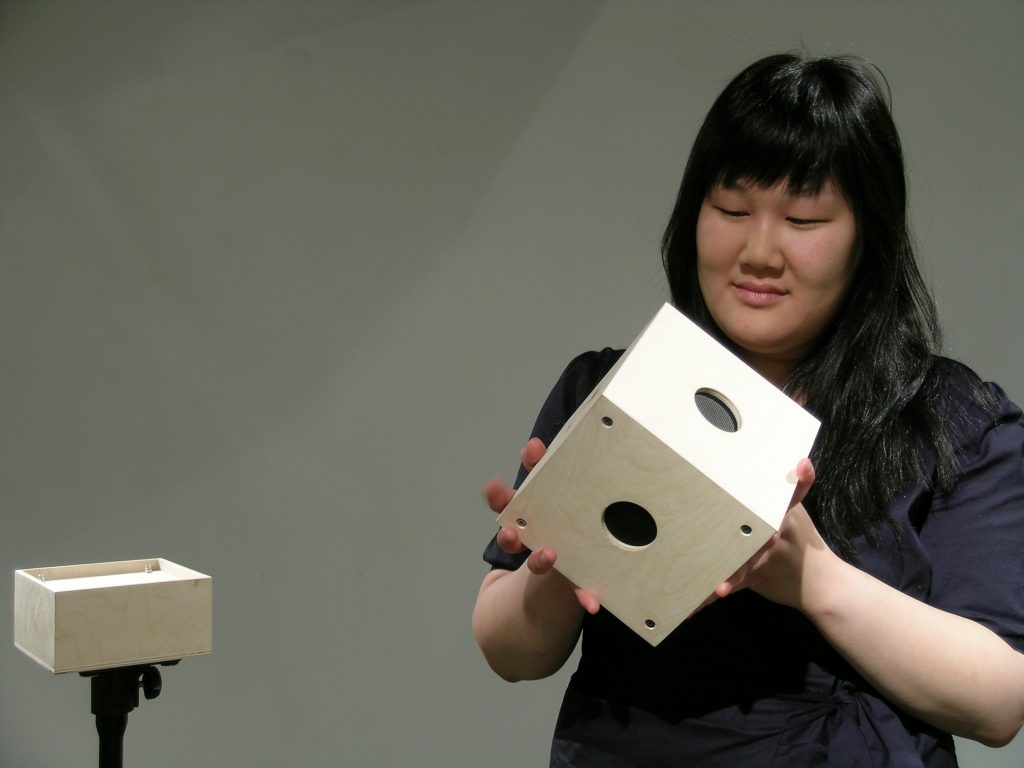Catherine Béchard and Sabin HudonBabbling/Sounding/Noising Cubes

Catherine Béchard, 2007
Babbling/Sounding/Noising Cubes are pleasant-to-touch wooden objects containing a multitude of sounds that create an acoustic vocabulary. By holding them in your hand and turning them in all directions, you discover their contents and, in the course of manipulating them, unexpected and unpredictable associations and entanglements occur that you can model as you wish. Sighing, coughing, sneezing, leaves rustling, thunder, car humming, water gurgling in metal pipes, door banging — brief and fleeting stories thus unfold, each time reinvented, starting from a tactile, visual and sound object.
Each cube contains an electronic device having six independent channels — one per side — of digitally amplified sound memory and an accelerometer that reads its position. Wireless and energetically self-sufficient, the cubes are multifaceted and multichannel objects that allow for omnidirectional, unidirectional or pluridirectional spatializations.
Visitors are invited to explore and engage with this environment by manipulating the cubes distributed in the space. The order or disorder in which the visitor experiments with these sound objects create individual/collective, linear/non-linear sound paths that constantly enrich one another.
Babbling/Sounding/Noising Cubes are an exploration in miniature of the world’s immensity and address notions such as inside/outside, open/close. They speak of a memory that forgets, remembers and imagines, and of being here now.
Exhibition from November 8 – December 13, 2008
Opening on Saturday, November 8, 2008 at 5 pm
Intensive seminar on November 15, 2008, from 9 am to 5 pm

Catherine Béchard, 2007
Catherine Béchard and Sabin Hudon form a duo of multidisciplinary artists who live and work in Montreal. Working in the fields of sculpture, audio art and new media, the duo is particularly interested in phenomena linked to acoustically generated sounds/noises, their propagations, the impressions they give as well as the “things” and “empty spaces between things” that compose our perceptual fields.